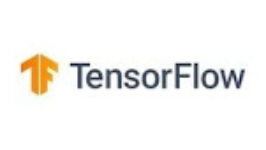
TensorFlow: Basic to Advanced Training
Requirements
-
Basic programming knowledge, ideally in Python
-
Understanding of fundamental math concepts like linear algebra and probability
-
Familiarity with machine learning basics is helpful but not required
-
A computer with internet access for installing TensorFlow and coding projects
Description
This course offers a comprehensive journey into TensorFlow, guiding learners from the basics to advanced applications of machine learning and deep learning with this powerful open-source framework. Starting with an introduction to machine learning and the unique capabilities of TensorFlow, students will gain foundational knowledge that sets the stage for more complex concepts. The course begins with installation and setup instructions to ensure every student is equipped with the necessary tools and environment for TensorFlow development. Early modules cover the essential building blocks of TensorFlow, including tensors, operations, computational graphs, and sessions. Through these topics, students will understand the core components of TensorFlow and how to utilize them effectively for simple projects and data operations.
As the course progresses, learners dive deeper into neural networks, exploring how to build, train, and optimize basic models. The intermediate section introduces Keras, the user-friendly API for TensorFlow, allowing students to design and train complex models more intuitively. Topics like convolutional neural networks (CNNs) and recurrent neural networks (RNNs) provide hands-on experience with real-world data types, such as images and sequences. The course then transitions to advanced topics, covering essential skills for deploying and scaling models. Students will learn to save, load, and serve TensorFlow models, enabling them to apply their knowledge in production environments. They’ll also explore distributed TensorFlow for scaling applications across multiple devices and TensorFlow Extended (TFX) for building end-to-end machine learning pipelines.
With practical projects and real-world applications woven throughout, students will have the chance to build models for tasks like image classification, sentiment analysis, and time series prediction, solidifying their skills through hands-on practice. By the end of the course, learners will be equipped not only with the technical knowledge but also the practical experience needed to implement, deploy, and manage TensorFlow models in professional environments. This course is ideal for anyone looking to advance their career in data science, machine learning, or artificial intelligence, empowering them with the expertise to tackle complex challenges in today’s data-driven world.
Who this course is for:
- Aspiring Data Scientists and ML Engineers who want to build a solid foundation in TensorFlow for real-world machine learning projects




